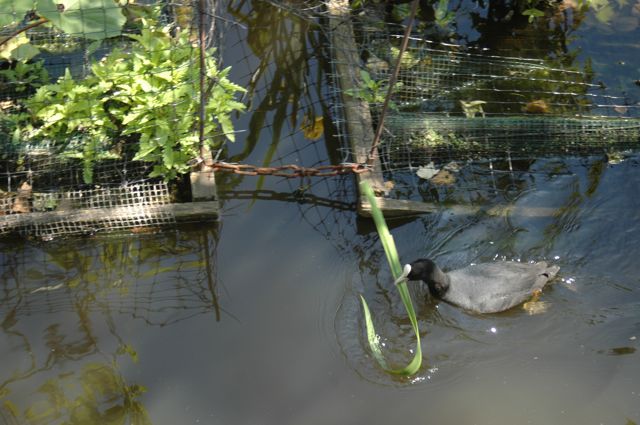Helga Fassbinder
We are living in a time of fundamental changes. In building too, it seems as if we have reached the edge of a new era. Suddenly the green city is a big issue.
In the light of climate change and energy crisis, greening is a low-cost and fast way to alleviate the problems that are recently bothering cities more and more:
As an action against flooding caused by torrential rain, greening on and between buildings to collect and store rainwater can be realized rather fast and inexpensively. What we can't easily do is scarify all road surfaces to install large-core sewer systems.
Concerning the almost tropical heat-waves, greening is also cheaper than air conditioning – especially if we consider the rising energy costs. Studies show that temperature can be lowered by up to 13 degrees.
Green in the city – the public applauds. There hasn't been a topic that gained such a broad affirmation throughout the population stratum in ages. And the politicians got it: practically every party comes up with greening initiatives these days.
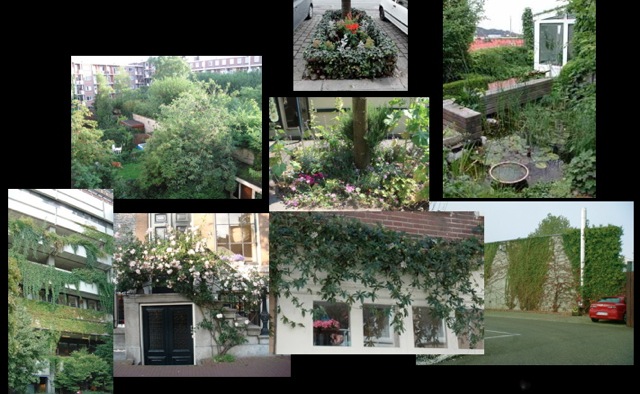
There are still some technical problems left – but that is feasible. Concerning rooftop plantation, these problems have already been solved. It will also work for the construction of outwalls that allow a low-cost storefront greening. And there are highly concentrated substrata for plant growth being developed these days for trees in limited space.
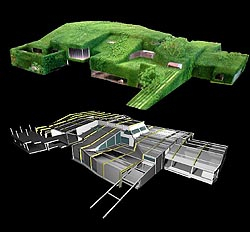
This will create a completely new architectonical and urbanistic aesthetics, a different idea of the beauty of cities.
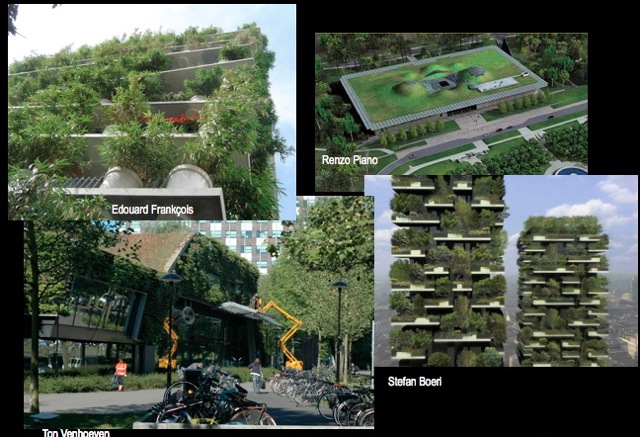
Most architects are still severely hesitating. They have been educated with different ideals of architecture. But even the architects will turn to the new aesthetic paradigm of greened buildings as soon as the building owners want their houses to be greened. At the moment owners don't ask for that yet, but that's merely a matter of time. The crucial factors are the demand of tenants and buyers on the one hand, construction costs and annual running costs on the other hand.
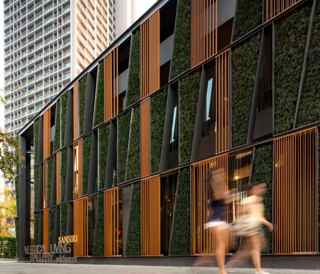 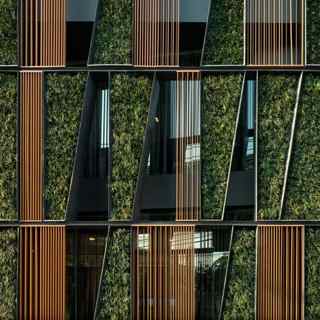
However, this green feasibility has an implication that reaches further – an implication that will prod our world into action. Namely green is not a static element of construction like stone, steel, concrete, glass, or construction timber. Green is alive. Green has momentum.
Nature, up to now being successfully debarred or, if tolerated, kept enclosed in parks etc., will then enter the urban stage spaciously and pretty self-consistently. And that will challenge us to interact constantly.
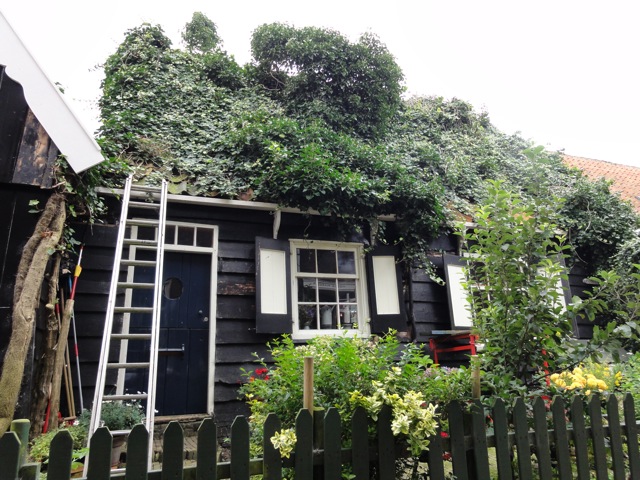
Green calls for a new attitude. Not only our human activities are processes then – buildings and the city itself become processes.
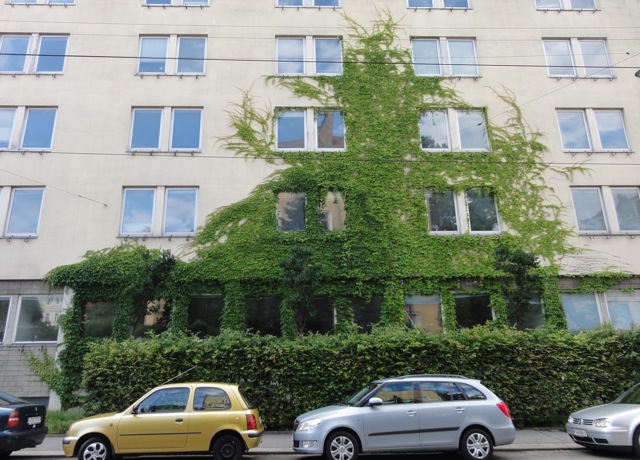
Green never is flora alone, green has its entourage. Green always implicates fauna. There's not only leaves falling, but birds also leave their droppings, and spiders, beatles and other small animals populate our environment.
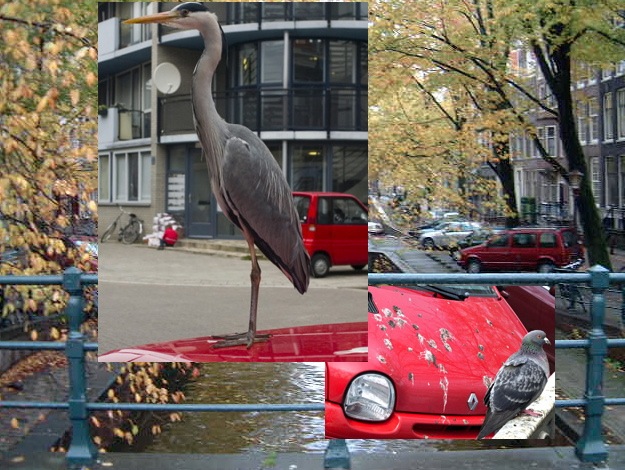
Urbanites have to develop a new relationship with invading nature. Either way you put it – it adds up to interaction among equals…
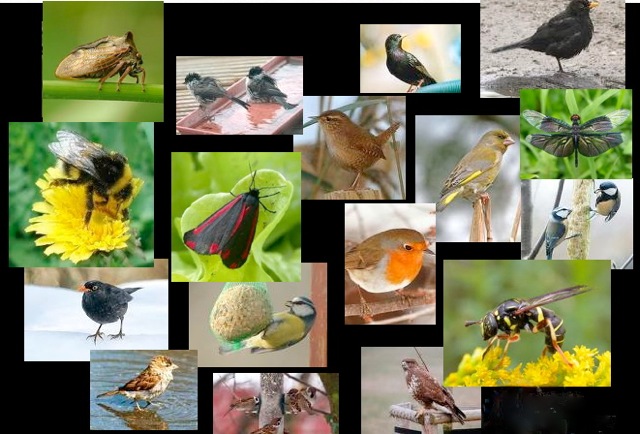
Here's where the philosophy of green starts.
It turns a lot of what we were used to think during the last 200 years upside down. Suddenly it is not self-evident anymore that we control and rule over everything.
We have to realize that we are just a part of a huge, all-embracing Whole that moves in millionfold cycles of different velocities. We need a different world view.
This is not completely new – there have always been seeds of this insight in the history of human self-reassurance. But now we are living in a world of increasing global shortage of resources. And we have to realize the insight how deeply interdependent everything alive is in this world of increasing shortage. The challenge is to convert the insight into building activity. Not as a romantic retro-program but as an intelligent combination of high tech and low tech, of the most advanced technologies and simple, traditional practices which could lead to a renewed take-over of responsibility for their city by citizens. 'The city as nature' is a school for the civil society...
|
